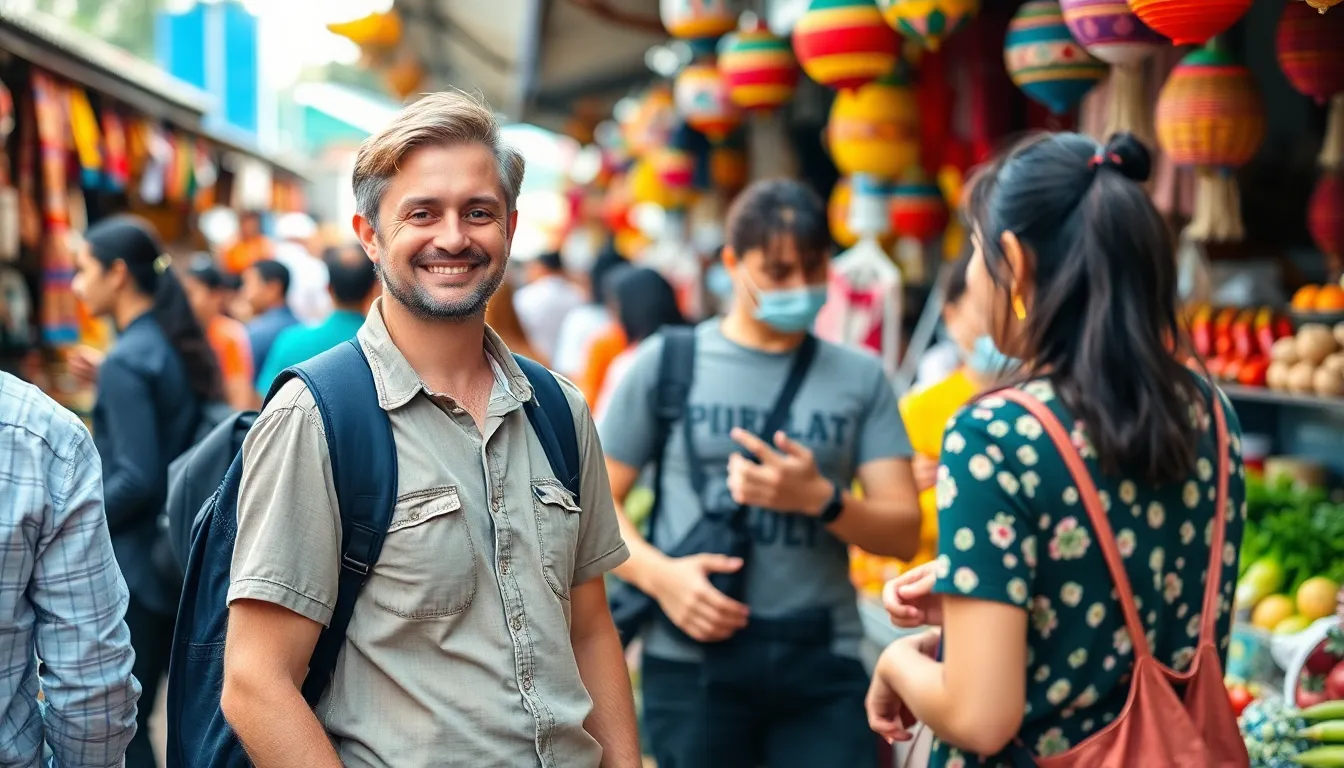Table of Contents
ToggleTraveling the world is like opening a book filled with vibrant stories, but without cultural sensitivity, one might end up reading the wrong chapter. Imagine stepping into a bustling market, excited to sample local delicacies, only to inadvertently offend the vendor with a misplaced gesture. Oops! Cultural sensitivity travel isn’t just a buzzword; it’s the secret sauce that turns a good trip into a great adventure.
Understanding Cultural Sensitivity
Cultural sensitivity involves recognizing and respecting the diverse beliefs, practices, and values of different cultures. This awareness fosters positive interactions and enhances travel experiences.
Definition of Cultural Sensitivity
Cultural sensitivity means being aware of the cultural differences that exist among people. It requires travelers to learn about local customs, traditions, and social norms. Acknowledging these differences leads to deeper connections with locals. Adapting behaviors based on cultural understanding creates a respectful environment. Travelers benefit from this awareness by enhancing communication and building trust with the communities they visit.
Importance in Travel
Cultural sensitivity plays a critical role in enriching travel experiences. Understanding local cultures helps avoid misunderstandings and unintentional offenses. As travelers respect traditions, they contribute to a positive image of their own culture. Learning the appropriate behaviors can also open doors to authentic interactions, making the journey more rewarding. Engaging with locals enhances both personal growth and cultural exchange between visitors and residents.
Preparing for Cultural Sensitivity Travel

Travelers must approach cultural sensitivity with preparation. Being informed enhances interactions and contributes to memorable experiences.
Researching Destinations
Exploring local cultures, traditions, and histories proves essential prior to arrival. Understanding a destination’s background aids in avoiding potential faux pas. Utilize online resources, articles, and documentaries to gather relevant information. Local travel forums also provide valuable insights from those who have visited. Consider reading books authored by cultural experts who detail practices and rituals. Engaging with social media platforms showcasing the destination can offer current perspectives. All of these methods help build a comprehensive understanding of what to expect and respect.
Learning Local Customs
Knowing a culture’s customs fosters appreciation during travels. Engaging with guides that outline social norms proves beneficial. Pay attention to greetings, dining etiquette, and dress codes unique to each locale. Observing local behavior in public spaces allows for real-time learning. Language basics, such as key phrases or greetings, help build rapport with locals. Participating in workshops or cultural events can deepen understanding of traditions. Valuing local customs enriches the travel experience and invites authentic connections with communities.
Practicing Cultural Sensitivity Abroad
Practicing cultural sensitivity abroad involves understanding and respecting the local way of life. Such awareness enhances travel experiences and fosters meaningful connections.
Respecting Local Traditions
Respecting local traditions cultivates appreciation and strengthens relationships with residents. Every culture has unique customs, rituals, and festivals. Participation in local events demonstrates commitment to understanding cultural practices. Following dress codes during visits to sacred sites shows respect and awareness. Additionally, recognizing individual customs, such as mealtime traditions or local ceremonies, prevents unintentional offenses. Photographic etiquette must also be considered; asking permission before taking pictures of people or private spaces is crucial. Ultimately, embracing local traditions enriches the travel experience while paying homage to the diverse tapestry of global cultures.
Engaging with Local Communities
Engaging with local communities fosters a deeper connection while traveling. Taking time to learn basic phrases in the local language promotes goodwill and appreciation. Travelers should participate in community activities, whether volunteering or attending local workshops. Such involvement provides authentic interactions and valuable insights into the daily lives of residents. Local markets, neighborhood gatherings, and cultural performances offer opportunities for connection and understanding. Listening to stories from locals also deepens appreciation for their history and traditions. Building relationships within the community allows travelers to gain unique perspectives and cultivate lasting memories.
Challenges and Solutions
Cultural sensitivity travel faces various challenges, yet solutions exist to enhance experiences and interactions.
Common Misunderstandings
Travelers often misinterpret local gestures or customs, leading to unintended offenses. For instance, pointing with one finger may be acceptable in some cultures but considered rude in others. Local dining etiquette can also pose challenges; sharing food might be customary in one culture while in another, it signifies poor manners. Misunderstanding dress codes at religious sites can result in discomfort or exclusion. It’s crucial to recognize these differences to avoid awkward situations and foster respectful exchanges.
Strategies for Overcoming Barriers
To navigate challenges effectively, thorough research proves essential. Engaging with cultural experts and using online resources can provide necessary insights into local traditions. Learning basic phrases in the local language enhances communication and demonstrates respect. Participating in local customs helps travelers build rapport with residents. Observing local behavior in social settings fosters understanding and encourages positive interactions. Embracing flexibility and open-mindedness allows for richer experiences while respecting the complexities of diverse cultures.
Traveling with cultural sensitivity transforms ordinary trips into extraordinary journeys. By embracing local customs and engaging with communities, travelers not only enhance their own experiences but also contribute positively to the places they visit. Understanding and respecting diverse cultures fosters authentic connections that enrich personal growth and promote meaningful exchanges.
As travelers prepare for their adventures, prioritizing cultural awareness can prevent misunderstandings and create lasting memories. The effort to learn about local traditions and practices pays off in the form of deeper relationships and unforgettable experiences. Ultimately, cultural sensitivity not only benefits the traveler but also honors the rich tapestry of global cultures, paving the way for a more respectful and enriching travel landscape.






